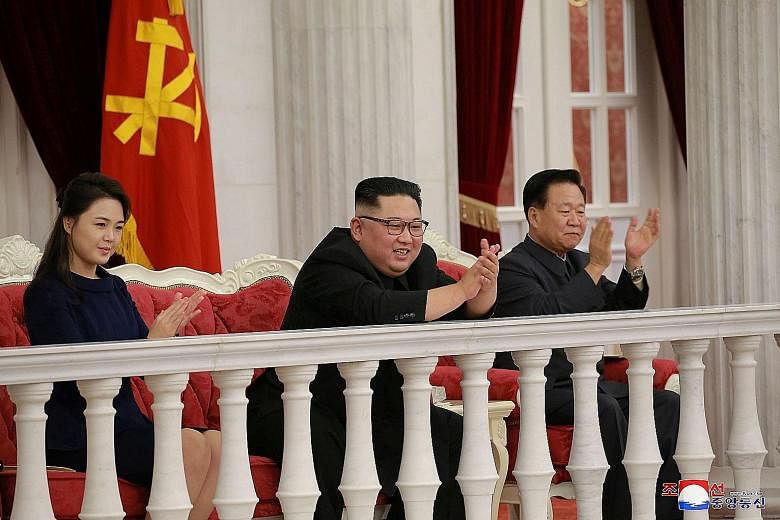WASHINGTON • Weeks before a second summit between United States President Donald Trump and North Korean leader Kim Jong Un, the top US military commanders for Asia and South Korea on Tuesday echoed an intelligence assessment that North Korea is unlikely to give up all its nuclear weapons.
Although he expressed optimism about the Hanoi summit on Feb 27 and 28, in verbal testimony to the Senate Armed Services Committee, Admiral Philip Davidson, head of the United States Indo-Pacific Command (Usindopacom), expressed doubts about North Korean intentions in his written submission to the panel.
"Usindopacom's assessment on North Korean denuclearisation is consistent with the intelligence community position. That is, we think it is unlikely that North Korea will give up all of its nuclear weapons or production capabilities, but seeks to negotiate partial denuclearisation in exchange for US and international concessions," he said.
The commander of US forces in South Korea cited a "palpable" decline in US-North Korean tensions, but likewise warned there is little evidence that Mr Kim is willing to give up his nuclear arsenal.
"Today is Day 440 since the last strategic provocation" by North Korea through a missile or nuclear test, Army General Robert Abrams told the Senate hearing. That has meant "a marked reduction in tensions" on the Korean peninsula, he said, and a reduced risk of miscalculation.
The White House declined to comment on Adm Davidson's remarks.
While Gen Abrams credited the Trump-Kim talks as contributing to the improved atmosphere, he offered little optimism that Mr Trump's efforts will lead to his goal of a nuclear-free North Korea.
Last month, US director of national intelligence Dan Coats told Congress he believed that it was unlikely that North Korea would give up all its nuclear weapons and that it had continued activity inconsistent with pledges to denuclearise.
Mr Trump has been eager for a second summit with Mr Kim even though their first meeting in Singapore in June last year produced only vague commitments from Mr Kim and little concrete progress since.
While the US President has cited North Korea halting its nuclear testing and no new missile launches in 15 months as proof of progress, a report by United Nations sanctions monitors has also cast doubt on Pyongyang's intentions.
Pyongyang "is using civilian facilities, including airports, for ballistic missile assembly and testing with the goal of effectively preventing 'decapitation' strikes" on a smaller number of identified nuclear and missile assembly and manufacturing sites, the UN report said.
A Stanford University study released on Tuesday also said North Korea had continued to produce bomb fuel while in talks with the US and may have produced enough in the past year to add as many as seven nuclear weapons to its arsenal.
However, it said North Korea's freeze in nuclear and missile testing since 2017 means its weapons programme probably poses less of a threat than it did at the end of that year.
Mr Kim pledged in Singapore to work towards denuclearisation of the Korean peninsula and in September expressed willingness to permanently dismantle facilities at his country's main nuclear site of Yongbyon - in return for corresponding US moves.
A US State Department spokesman said it remained confident that the commitments made at the Singapore summit would be fulfilled and added: "It is Chairman Kim's commitment to denuclearisation upon which the world is focused."
In talks with the US, North Korea has been seeking a lifting of punishing US-led sanctions, a formal end to the Korean War of 1950 to 1953 and security guarantees.
US Special Representative for North Korea Stephen Biegun held three days of talks in Pyongyang last week to prepare for the second summit, which he said would include discussions of such corresponding steps.
Meanwhile, Vietnam's Foreign Minister arrived in North Korea on Tuesday, Pyongyang's state media said, ahead of the second summit.
With the high-stakes meeting now two weeks away, Pyongyang has yet to provide any official confirmation of the meeting in the Vietnamese capital Hanoi.
"A delegation of the Vietnamese foreign ministry led by Pham Binh Minh, Deputy Prime Minister of the Socialist Republic of Vietnam, arrived here on Tuesday," the official KCNA news agency said, without expanding.
REUTERS, BLOOMBERG, AGENCE FRANCE PRESSE

